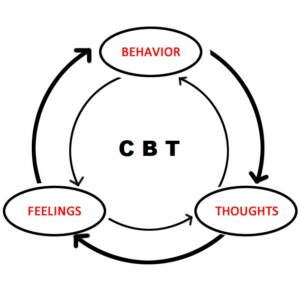If you are one of the many people who suffer from OCD, you know that it can be a difficult disorder to live with. The intrusive thoughts and compulsive behaviors can take over your life and make it hard to do anything else. But don’t worry – there is help available! In this blog post, we will discuss Counting OCD treatment and recovery from OCD.
Contents
What Does ” Counting OCD” Mean?

Counting OCD is a type of obsessive-compulsive disorder (OCD) in which a person experiences intense anxiety when counting objects or numbers. This can include items like door locks, steps, light switches, and coins. People with this condition perform repetitive and sometimes excessive counting rituals to help them feel less anxious.
The signs of counting OCD can vary from person to person. Some common symptoms include:
- Compulsive counting of items or numbers, even when there is no need to do so
- Worrying about making mistakes while counting or not meeting a certain number
- Anxiety and stress related to counting rituals
- Avoidance of activities that involve counting, such as shopping
- Spending too much time on counting activities.
The negative effects of counting OCD can be debilitating and interfere with a person’s quality of life. It is important to get treatment as soon as possible to gain control over the disorder and learn how to live a healthier, happier life.
Treatment for Counting OCD
While it might not seem like much at first glance, Counting OCD can be an incredibly distressing and debilitating condition that can severely impact the quality of life. Thankfully, there are treatments available to help people manage their anxieties and live healthier life free from obsessive counting rituals.
Cognitive Behavioral Therapy (CBT)

CBT helps people recognize patterns in their thoughts that lead to anxious or obsessive behaviors. Through CBT, people learn new skills and strategies to manage their OCD thoughts and reduce the associated anxiety.
CBT is a type of talk therapy that can help people with OCD identify and challenge negative thoughts and beliefs about themselves. The goal is to understand why obsessive behavior happens, develop new ways of thinking, and become more aware of how emotions affect decisions. Also, CBT can provide better insight into the origins of counting OCD and how to change behavior.
Exposure and Response Prevention (ERP)
ERP is a form of behavioral therapy that challenges people’s compulsions and helps them learn to control their reactions when exposed to something they fear. During ERP, a person is gradually exposed to the trigger or source of their anxiety in a safe environment and coached on how to manage the urge to perform an obsessive action. Over time, this will reduce the strength of the urge and help them gain more control over their obsessive behavior.
Thought Record
A thought record is a tool used in CBT to help people understand and challenge their thoughts. It can be used to identify patterns in thinking, notice the triggers of anxiety, and develop more positive ways of thinking. This tool can help people with Counting OCD gain control over their negative thoughts and feelings related to counting rituals. This can be done by recording the details of a situation, noting down thoughts and reactions, and rating the intensity of emotions.
Medication

In some cases, medications may be prescribed to help manage Counting OCD symptoms. These medications can work in tandem with other treatments like CBT or ERP to reduce anxiety and obsessive-compulsive behavior. Some common medications used to treat OCD include selective serotonin reuptake inhibitors (SSRIs) and tricyclic antidepressants (TCAs).
These medications can help reduce intrusive thoughts and compulsive behaviors, making it easier to cope with the condition. However, these are powerful drugs and should only be taken under the guidance of a medical professional. One type of medication may work better for one person than another, so it is important to talk to a doctor about what medication might be best for you.
Self-Help Strategies
In addition to professional treatments, some self-help strategies can be used to manage OCD symptoms. These include :
Avoiding Caffeine
One of the most important things for people with Counting OCD is to avoid stimulants like caffeine. Caffeine can worsen anxiety and make it harder to resist the urge to count. Also, it is important to get enough sleep as this helps the body and mind recover from stress. Also, it is important to stay active and make time for relaxation activities like yoga or meditation.
Developing Positive Coping Skills
It is also important to develop positive coping skills. All of these techniques can help reduce anxiety at the moment and give people with Counting OCD a sense of control over their behaviors. Learning how to recognize triggers and respond with positive coping skills can be an effective way to manage symptoms over time.
Seeking Support
It is important for people with Counting OCD to not feel alone in their journey toward recovery. Seeking out support from family and friends, joining a support group, or seeking professional counseling can all help manage the condition. Talking to a therapist or counselor can help provide insight into the roots of the issue and bring clarity to thoughts and feelings. It can also lead to better-coping strategies and improved quality of life.
Relaxation Techniques
Relaxation techniques such as deep breathing, mindfulness, progressive muscle relaxation, and visualization can help reduce anxiety levels. Taking time out for yourself and focusing on calming activities like yoga or meditation can also be beneficial in reducing stress levels.
Pursuing a Healthy Lifestyle
It’s important to develop healthy habits when living with Counting OCD. Eating nutritious meals, exercising regularly, and avoiding alcohol and drugs are all good ways to support emotional well-being. Getting involved in hobbies or other activities you enjoy can also provide an outlet for managing negative thoughts or feelings that may arise from obsessive counting rituals.
Eating Good Quality Foods
Choosing healthy, nutritious foods can help the brain and body function better and support a sense of well-being. Eating colorful fruits and vegetables will provide essential vitamins, minerals, and antioxidants to help maintain physical health. Whole grains, lean proteins, and healthy fats should also be included in the daily diet.
Practicing Positive Self Talk
It is also important to practice positive self-talk when dealing with Counting OCD. When intrusive thoughts arise, remind yourself that you are not your thoughts – you have control over them. Affirmations such as “I am strong enough to manage my OCD” or “I am capable of living a meaningful life free from counting rituals” can help foster resilience and motivation.
Support Groups
Another type of treatment that can be beneficial for people with Counting OCD is joining a support group. Underscoring the importance of community, these groups provide mutual understanding and help build connections and trust among members. They also offer a safe space to discuss feelings and experiences, providing education about the condition and resources for further help.
In addition to finding meaningful connections through support groups, seeking out positive relationships in other areas of life can also help manage symptoms. Having friends or family members who are knowledgeable about OCD can be a great source of comfort and understanding during tough times. It is important to remember that you are not alone on your journey toward recovery – many people are willing to lend an ear or a hand when needed.
Selecting Counting OCD Treatment Method
Selecting a treatment method for Counting OCD can be difficult. It is important to work closely with your physician or mental health professional to determine the best course of action. There are various treatments available, including Cognitive Behavioral Therapy (CBT), Exposure and Response Prevention (ERP), Acceptance and Commitment Therapy (ACT), and medication.
1. Talk to Your Doctor: Before deciding on a course of treatment explore different options with your doctor or therapist. Discuss any potential side effects, the expected duration of treatment, as well as realistic expectations for improvement.
2. Set Realistic Goals: Make sure that whatever goal you set is achievable in a reasonable amount of time so that you do not get discouraged if progress is slow.
3. Find a Support System: Connecting with a support system of friends and family can be essential to recovery from OCD. They can provide emotional support, help you stay on track with treatment plans, and provide encouragement if progress is slow.
4. Practice Mindfulness: Practicing mindfulness can be an effective way of managing anxiety associated with OCD and its symptoms. Taking time to focus on the present moment can help reduce stress levels and bring awareness to intrusive thoughts or urges to perform rituals associated with counting OCD.
5. Activity Tracking: Keeping track of activities that trigger your obsessive thoughts about counting can help identify patterns in how often these thoughts occur and how you respond when they do come up. This information can help guide treatment plans and provide insight into what activities should be avoided or adjusted to reduce the intensity of symptoms.
6. Open Dialogue: Communicate openly with your doctor or therapist regarding any progress made or setbacks experienced in the treatment. This can help them better tailor treatment options to fit individual needs.
7. Identify Triggers: Create a list of activities that trigger obsessive thoughts about counting and develop plans on how to manage them going forward. By identifying triggers ahead of time, it is easier to stay focused on recovery goals and keep intrusive thoughts at bay.
Conclusion
Counseling and medication are the mainstays of treatment for counting OCD. Some people also find that lifestyle changes such as avoiding triggers, finding healthier ways to cope with stress, or engaging in mindfulness activities can help reduce symptoms. Although it may take some time and patience, dealing with counting OCD is possible. Remember – don’t give up and don’t let the disorder run your life! With the right tools and support, you can make a full recovery.
It’s important to talk to a doctor or mental health provider if you have signs of counting OCD or any other type of obsessive-compulsive disorder.
For more information and guidance, please contact OCDMantra. OCD is a mental health disorder characterized by obsessions and compulsions. If you have any queries regarding OCD treatment, ERP therapy experienced therapists at OCDMantra can help: Book a trial OD therapy session.


